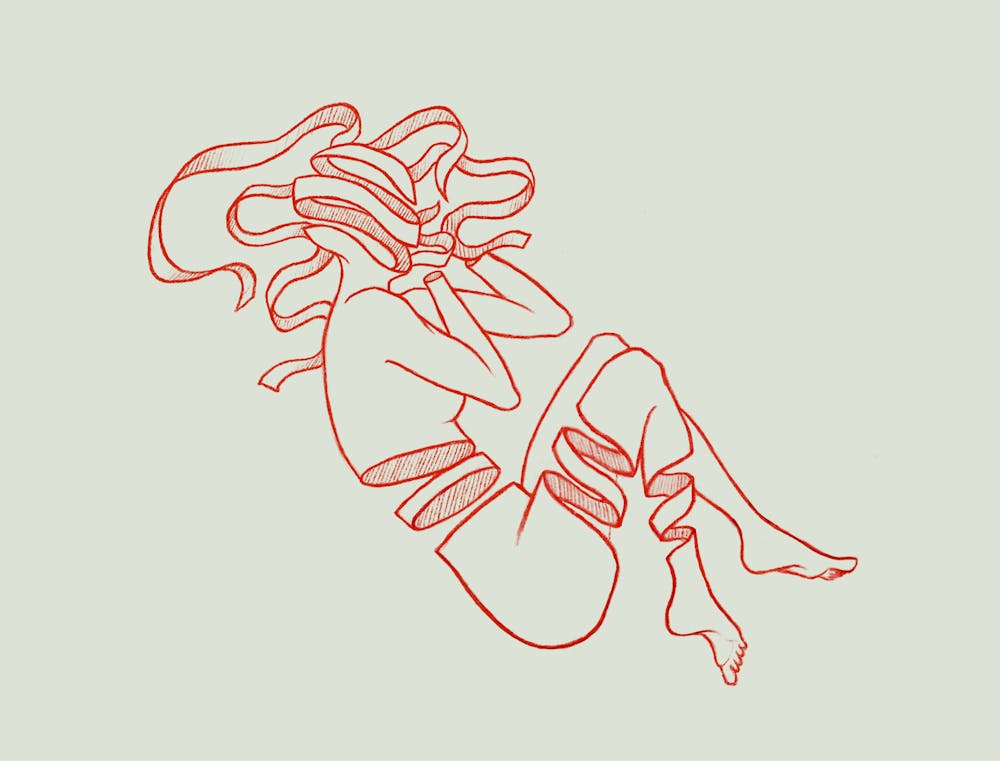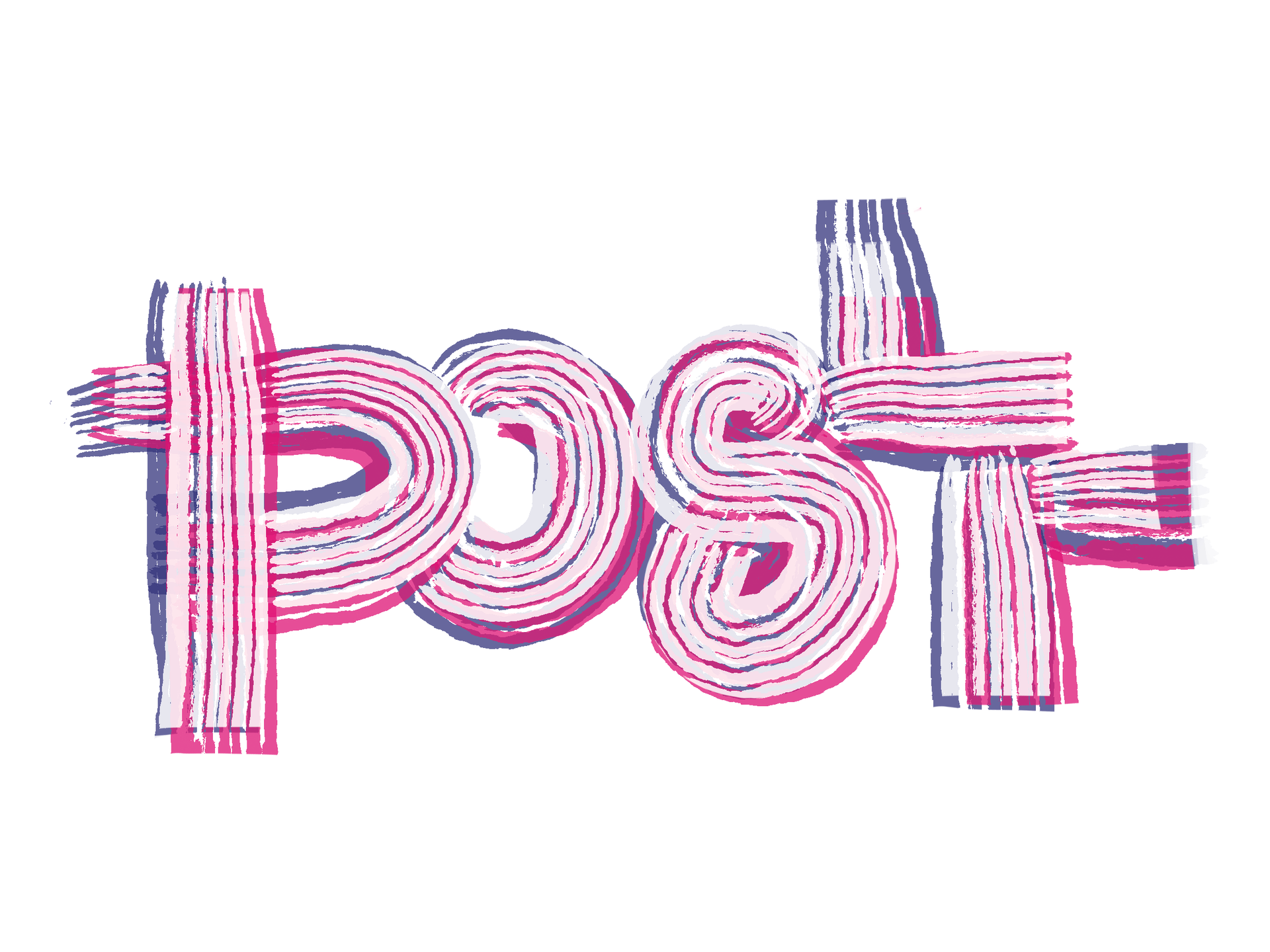I am sitting in class with my hair limp down my back. It does not curve and it does not layer and it does not flutter. It sees my scalp for the chair that it is and sits there, unfashionably, without appeal. I have lost my claw clip.
By lost, I mean I never owned one. I never particularly wanted one. One day I learned of their social importance by watching my beautiful friend perfectly fasten her hair with one, her stray strands spilling over the top of their encasement and cascading in tufts across her head. The claw clip was tortoiseshell, or maybe pastel. Wow, I thought. She looks incredible.
And this is true, and other people tell her this at times, and they say it to her the way they say it to many people who also look incredible: staring her straight in the eye, with a casual but insistent tone, because they wish for her to know that she has achieved something. The exchange happens as an affirmation of beauty’s centrality, in which the verbalized acknowledgement of the beauty is as significant as the reception of the compliment.
My friend looks incredible because prettiness is her natural state, but also now because this prettiness is expected. Her appearance boasts a confluence of the genetic and the assembled, the inherent and the intentional. She looks like how she’s supposed to look when she goes out in public. She looks like someone who will walk across campus and attract attention, turn heads—like someone who belongs.
To move with her coveted air of noticeability is to integrate seamlessly—remarkably—into the fray of individuals. This is not a contradiction, I assure you: being perceived with a positivity so accentuated and unique has become the central litmus test for acceptance. We look at people like my friend and we approve, because we know they are fulfilling a necessity. Everyone is beautiful here and we love it. Everyone is beautiful and this is lots of fun and this is good.
By we, yes I do mean us, and by here, yes I do mean here. Because this is not merely a condition that permeates Instagram and yoga studios and Netflix offerings, it is a culture endemic for Brown students, one that asserts itself from the red brick foundation of this school.
Beauty on its own is inherent. It’s natural and expected and random; it’s nice and fine and all that, sure. In its basic and pure state, beauty exists as a pleasure, but one that is valueless. People are attracted to the looks of others because aesthetics will always guide us and matter to us. But these aesthetics on their own do not constitute the absolute mode of exchange in the way we interact with one another.
In its most basic form, beauty exists as a phenomenon. We may touch it and we may see it and we may want it. We may uphold it and pursue it as a marker of our subjective attractions to others, and as a proponent of self-esteem. When beauty becomes lauded to the point of social pressure and obsession, however, it transcends beyond its position as an inhabitant of our lives to a position of sovereignty. Its totality in dictating social exchange indicates that beauty on our campus has indeed become amplified from a simple phenomenon and now operates as a culture. But beauty does not deserve glorification to this extent. And yet, beauty has become so valorized and dominant and constant that it is no longer just a phenomenon, as indefinable and unmarketable and subjective as attraction. Beauty has become a culture, and that’s where the problem arises, because culture expects you to abide by and perpetuate it. If your features (and tastes) do not fit into the mold of the dominant culture, then this mold aggressively encourages you to pursue an exclusive and demoralizing assimilation.
We see this because it manifests everywhere. I state that my friend is beautiful and we recognize this affirmation because we encounter its constant iterations, in every setting and moment. A day in my life runs as follows. I walk into the Ratty for breakfast and shudder at the ubiquity of 9 a.m. flawlessness, and I wonder if I should don a mask simply to avoid being sized up. I sit in class and listen to the duo in front of me tell each other how great each of them looks. I walk through the Main Green and feel the urge to rave about the girl with the long skirt splayed out on the grass. I pick up a copy of a campus publication and read a lighthearted evaluation of someone’s hotness. I stand in line for the bathroom at a party and hear strangers connect as they gush over each other’s gorgeousness. Whether we are telling the one who has captured our attention or simply conferring with our friend about the people we pass, this fixation on those who look “objectively” appealing pours out ceaselessly. I think everyone knows the presence of our campus obsession. Half the time, the first words we offer someone when we see them here are a validation of their appearance. “OMG you are soooo pretttyyyy!!!” And “Yeah, look at you today, so hotttt like that,” and even the simple “Hey I love the eyeliner/dress/hairstyle/random-way-your-shirt-happens-to-be-hanging-over-your-boobs-and-waist-today, it makes you look great.” We do not say this to the person wearing old jeans and a sweatshirt and large bags hanging beneath their eyes. Not because they are not attractive, but because they do not seem to care. Their appearance is immaterial, not beholden to perception. Only the curated and vivacious deserve our attention.
The other day someone relayed an anecdote about leaders of a student organization she is involved in, who tried to ingratiate themselves to her by gossiping about another team member’s purported ugliness. She declined to participate in the degradation. She is a rarity, not simply because she displays kindness (open mockery of ugliness marks an extremity; mainstream beauty culture silently shuns plainness off to the margins, “ugliness” an ineffable stigma unbefitting of the “Hottest Ivy”). Unlike most, she confides her exhaustion with this need to adore beauty, to cast it around like a token that buys our eyes and our words and our favor, yet whose value remains bolstered only by constant promotion.
The problem arises when we attempt to ascribe unified, measurable meaning to an elusive medium that presents itself as a matter of both birth and preference. Some people have really striking and lovely faces while others are quite plain and ordinary, c’est la vie; but at the same time, what is striking and what is ordinary is entirely unknowable, circumstantial, volatile. It is given and it is socialized. So, by marketing beauty as important, we render something which is perennially immaterial into something inauthentically material: a commodity, one that imposes a hierarchy and expects conformity. We interact with beauty as if it is capital—something we tell each other we must possess, that we must ostensibly strive to possess if we do not already. Something actuated as a combination of birth and personal achievement (through actual wealth-based material products like the things we put on—or in—our bodies), yet something that only retains its value as long as some who pine for it cannot attain it.
Beauty is capital because it is the very articulation of capitalism. Phenomenon becomes culture becomes economy. We must all be hot and gorgeous and beautiful; anything less spoils our riches and leaves us to duck our heads in shame.
I am not arguing for a greater inclusivity and democratization of beauty. I am saying that I do not want beauty to operate as a collectively-negotiated value. I do not care if you look pretty, and though I may notice it and offer a kind word to tell you I have noticed it, I will not praise you for it because it is arbitrary and equivocal and unearned. We are merely dealing with the subjectivity and selectivity of visuals. In its optimal form, beauty is relevant to our interactions, but beauty doesn’t mean anything.
Some days I wake up and stand in front of the mirror and will my reflection into obedience. I examine every sag or lift or swell or bump or splash of color that possibly developed in the night. I celebrate the excitement of having a pretty face day, and I chastise the inadequacy of a bad one. Is there anything as immutable as my own face? And yet, I have learned to fixate on the almost imperceptible minutiae of every momentary shift, as I hope upon hope that each morning it arrives to me in a good enough form to be witnessed. This ritual exhausts me. I do not mean we shouldn’t enjoy clothing or getting ready or self-presentation. I do not mean we shouldn’t offer sincere compliments when individual circumstances move us to do so. I mean we should not speak of hotness as if it is essential. We must rearticulate the distinction between beauty as feature and beauty as virtue. I would like to just be content to be.




